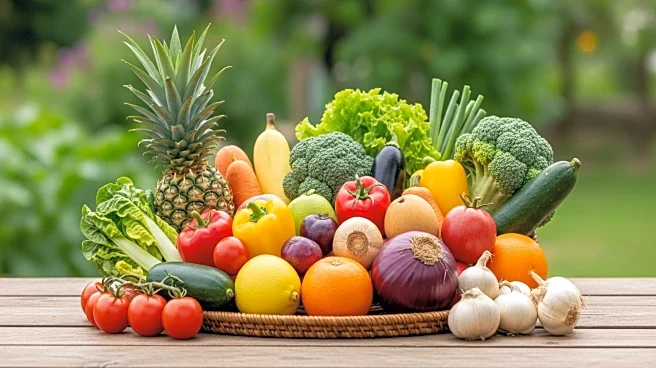What is the story about?
What's Happening?
The Food and Agriculture Organization (FAO) of the United Nations released a report assessing progress on 22 indicators related to Sustainable Development Goals (SDGs). The report highlights significant challenges in achieving food security and nutrition, with only 65% of women of childbearing age meeting minimum dietary diversity between 2019 and 2023. Global food insecurity has worsened, with 28% of the population experiencing moderate or severe food insecurity in 2024, up from 21.4% in 2015. The report underscores the need for increased efforts to address these issues, particularly in regions like sub-Saharan Africa and Central Asia.
Why It's Important?
The findings of the FAO report are crucial as they highlight the ongoing struggle to achieve global food security and nutrition targets. The deterioration in food security since 2015 indicates a growing challenge that could have severe implications for global health and economic stability. Regions lagging in progress, such as sub-Saharan Africa, face heightened risks of malnutrition and related health issues, which can impede development and exacerbate poverty. The report serves as a call to action for governments and international organizations to prioritize food security and nutrition in their policy agendas.
What's Next?
The FAO report suggests that increased international cooperation and targeted interventions are necessary to address the gaps in achieving food security and nutrition goals. Countries may need to reassess their strategies and increase investments in sustainable agriculture and nutrition programs. The report could prompt discussions at upcoming international forums, such as the United Nations General Assembly, to galvanize efforts and resources towards these critical issues.
Beyond the Headlines
The report also touches on broader issues such as gender disparities in land ownership and the economic challenges faced by small-scale food producers. These factors contribute to the complexity of achieving food security and highlight the need for comprehensive approaches that address social and economic inequalities.
















